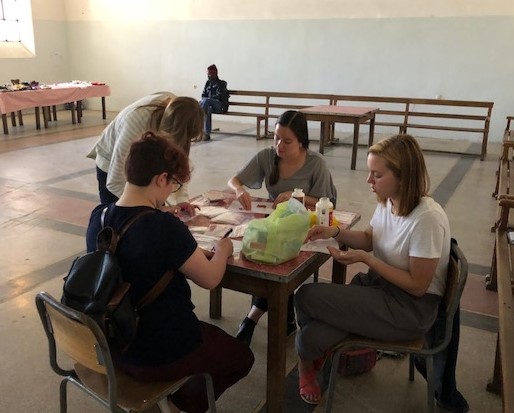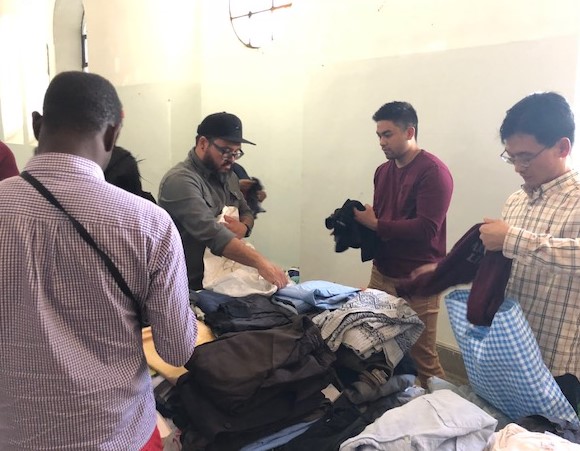One day while in Morocco, we took part in an open hours event led by CEI, a committee that works through the Christian church in Morocco to support migrants. At this event, we were divided between stations for processing the stories of the migrants, providing basic medical necessities and overseeing distribution of donated food and clothing. Although we tried to be as useful as possible, we, as HELM scholars, were unable to do much tangibly. Unbeknownst to the coordinators of the event as well as our group, another organization held an event that day where many migrants had been turned away. This event crossed into the beginning of our open hours time and, without our knowledge, a second wave of migrants came to our event comprised of rejected, weary and frustrated people. Likewise, many of the clothes donated were too small and slightly dirty. Although these may sound like random details, they played a key role in what occurred after.
Already angry about the circumstances that had caused them to flee their countries, the violence with which many of the had been met in trying to cross one or more borders, dashed dreams of a better future, and a previous event that had turned them away, enter the moments when they arrived at CEI’s open hours. Lines doubled upon their entry through the doors, adding to the moderate cacophony of voices swarming around the room prior to that point. Each station became slightly overwhelmed, though the CEI members functioned impressively. As we were far too short-staffed, many of the migrants got to the clothing station before being processed at a listening station. Ultimately, this lead to their frustration boiling over upon discovering that the clothes available were not their size and were partially dirty.
At that moment, histories and systems, such as colonialism, capitalism, and racialized images of wealth, collided with one another. Many of the men who had been turned away at a preceding event began arguing with CEI representatives. As CEI members tried to diffuse the situation, some of the migrants made sure that we heard them yell angry expressions about the United States and the HELM scholars were ushered out to our van. In the moments that these frustrated and exhausted people found only dirty clothes of the wrong size that must have come from the rich Americans present who didn’t know the language and offered little that could help their situations.
Initially, this might sound like an entirely bleak situation and that dwelling upon it is pointless. However, while other CEI members would later comment to us about poor planning and other factors that contributed to a moderate level of chaos that day, it reignited my belief in the following: a)that the church must engage in both addressing the tangible need created by systems of oppression, as we saw was absolutely the case in the places we visited in Morocco and b) the church cannot ignore a commitment to understanding and altering the systems that produce injustice, inequality and violence.
